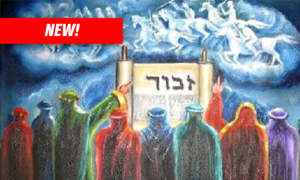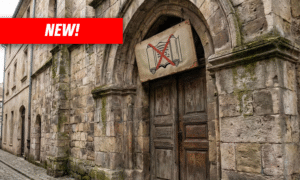Sicha, 10 Shevat 5714
A. Graveside Prayer
Jacob buried Rachel on the road to Bethlehem to enable the Jews to pray there on their way to exile (Source 1). In the merit of her prayers, G-d promised to return them back to their land (Source 2).
Caleb, one of the twelve spies, traveled to Hebron to pray at the grave of the Patriarchs for them to intercede on High for his mission to be successful (Source 3). Praying at the resting place of a tzadik has always been a Jewish tradition.
The Zohar expounds at length on the importance of prayer at the grave of a tzadik, and the effects of such prayer (Source 4).
B. Why are Tzadikim Buried in the Diaspora?
Esau invited Jacob to join him and travel quickly to Seir, but Jacob declined, explaining that he needed to travel at a slower pace with his family and cattle (Source 5). Chassidic teachings explain that Esau’s invitation was alluding to Esau’s desire to be refined through Jacob, and then Mashiach would have arrived. Jacob was prepared ready for Mashiach, but his children were not ready for such a revelation of divine light, so he remained in exile with them, until they would be able to experience redemption too.
For the same reason, Moses was buried in the desert and his remains were not brought to Israel for burial. The midrash teaches that G-d told Moses: “How will it appear if you enter Israel and your flock remains outside?” Therefore, Moses preferred to remain outside with his flock, until he’d be able to enter with them with the coming of Mashiach (Source 6).
Joseph, too, preferred to be buried in Egypt and did not ask his children to take his remains to Israel; he wished to strengthen the Jews during their exile in Egypt (Source 7).
The Rebbe adds that this is why the Chabad Rebbe are not buried in Israel – to give strength to their Chassidim. The tzadik’s help is rendered when petitioners pray at his graveside.
Story: The Small Jew in Curacao, and the Rebbe’s letter to him (Source 8)
To conclude, we’ll learn a letter from the Rebbe where the Rebbe explains the essence of prayer at the Sixth Rebbe’s resting place (Source 9).






